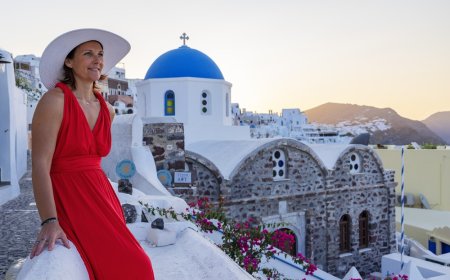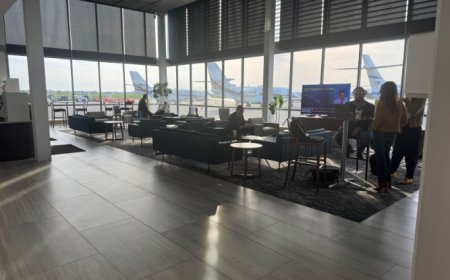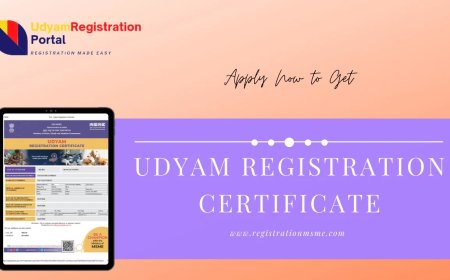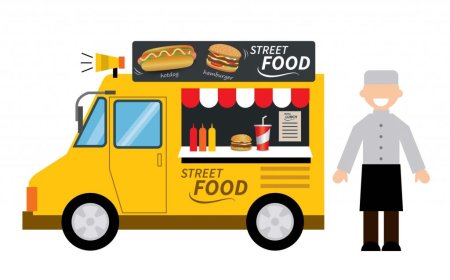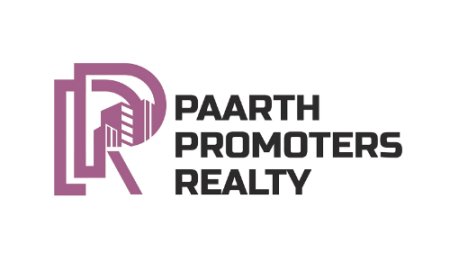Top 10 Sacramento Spots for Literary Events
Top 10 Sacramento Spots for Literary Events You Can Trust Sacramento, the capital of California, is more than just government buildings and riverfront parks—it’s a thriving hub for literature, storytelling, and intellectual exchange. From intimate poetry readings in historic bookstores to large-scale author festivals under the open sky, the city offers a rich tapestry of literary experiences. But
Top 10 Sacramento Spots for Literary Events You Can Trust
Sacramento, the capital of California, is more than just government buildings and riverfront parks—it’s a thriving hub for literature, storytelling, and intellectual exchange. From intimate poetry readings in historic bookstores to large-scale author festivals under the open sky, the city offers a rich tapestry of literary experiences. But in a landscape where events come and go with the seasons, how do you know which ones are worth your time? Trust isn’t just about popularity—it’s about consistency, community investment, curation quality, and genuine passion for the written word. This guide reveals the top 10 Sacramento spots for literary events you can trust, backed by years of programming, local author endorsements, and sustained audience engagement. Whether you’re a lifelong reader, an aspiring writer, or simply someone who loves the sound of a well-told story, these venues have earned their place at the heart of Sacramento’s literary soul.
Why Trust Matters
In the world of literary events, trust is the silent currency that determines whether a gathering becomes a cherished tradition or fades into obscurity. A trustworthy literary venue doesn’t just host readings—it cultivates community. It respects the craft, supports local voices, and maintains a standard of quality that readers and writers alike can rely on. Trust is built over time, through consistent programming, transparent organization, and a deep connection to the cultural fabric of the city.
Many cities boast flashy literary festivals with celebrity authors and glossy brochures, but Sacramento’s most enduring spaces are the ones that prioritize substance over spectacle. These venues don’t chase trends—they nurture voices. They offer platforms for emerging poets alongside established novelists. They provide accessible, inclusive environments where language is celebrated, not commodified. They are run by people who read, write, and believe in the power of stories to transform.
When you trust a literary venue, you’re not just showing up for an event—you’re investing in a culture. You’re supporting libraries that keep their shelves stocked with local authors, bookstores that host weekly open mics, and nonprofit organizations that fund writing workshops for underserved youth. These are the spaces where literary legacies are made, not just announced.
Trust also means reliability. You know that if you show up on the third Thursday of the month at a certain bookstore, you’ll hear a new short story from a local writer, not a corporate-sponsored product launch. You know that a library’s annual poetry slam won’t be canceled due to budget cuts because it’s backed by a dedicated team of volunteers and city arts grants. You know that a literary café won’t suddenly turn into a karaoke night because it’s committed to its mission.
This guide focuses exclusively on venues that have demonstrated this kind of enduring commitment. We’ve evaluated each based on five criteria: longevity of programming, community reputation, diversity of voices featured, accessibility (both physical and financial), and the presence of ongoing literary initiatives beyond single events. The result is a curated list of the top 10 Sacramento spots for literary events you can trust—places where the love of literature isn’t a marketing tactic, but a way of life.
Top 10 Sacramento Spots for Literary Events
1. The Sacramento Public Library – Central Library
At the heart of downtown Sacramento, the Central Library is more than a repository of books—it’s the city’s most consistent and respected literary institution. With over 200 literary events annually, ranging from author talks and writing workshops to children’s story hours and bilingual poetry nights, the Central Library sets the standard for public literary engagement.
The library’s “Sacramento Reads Together” program, now in its 15th year, selects a single book each year for the entire community to read and discuss. Past selections include works by local authors like Kiese Laymon and Viet Thanh Nguyen, fostering citywide dialogue around identity, history, and justice. The library also hosts the annual “Sacramento Book Festival,” one of the largest free literary gatherings in Northern California, featuring over 80 authors across multiple stages.
What makes this venue trustworthy is its non-commercial nature. No sponsor logos dominate the walls. No ticket scalping. No paid promotions. Events are free, open to all, and curated by librarians who are themselves avid readers and writers. The staff regularly collaborate with local universities and writing collectives to ensure programming remains fresh and representative of Sacramento’s diverse communities.
2. Bookshop Santa Cruz Sacramento (formerly Bookshop Sacramento)
Though originally founded in Santa Cruz, this independent bookstore opened its Sacramento location in 2018 with a mission to become the city’s literary living room. Since then, it has hosted over 300 author events, including book launches, memoir workshops, and genre-specific discussion groups (mystery, sci-fi, feminist literature).
What sets Bookshop Sacramento apart is its deep commitment to local authors. Nearly 70% of its events feature writers from the greater Sacramento region. The store offers a “Local Lit Spotlight” shelf, where new titles by Sacramento-based authors are prominently displayed and promoted. Monthly “Writer’s Night” events invite attendees to read original work in a supportive, no-pressure setting—often followed by open mic sessions that have launched the careers of several published poets.
The staff are known for their personal recommendations and deep knowledge of literary trends. They don’t just sell books—they talk about them. Their event calendar is meticulously curated, avoiding commercial bestsellers in favor of nuanced, thought-provoking titles. The space itself is warm and quiet, with comfortable seating, natural light, and a dedicated reading nook that often hosts afternoon poetry circles.
3. The Sacramento Poetry Center
Founded in 1976, the Sacramento Poetry Center is one of the oldest continuously operating poetry organizations in the state. Based in the historic Midtown district, it operates out of a converted 1920s bungalow that feels more like a literary salon than a formal institution.
The center hosts weekly open mics, biweekly featured poet readings, and quarterly themed anthologies published in partnership with local small presses. Its “Poetry in the Parks” initiative brings free, portable readings to underserved neighborhoods, ensuring access beyond the downtown core. The center also runs the “Sacramento Youth Poetry Project,” which places teaching artists in public high schools to mentor young writers.
Trust here is earned through decades of quiet dedication. There are no flashy websites or social media influencers. The center relies on word-of-mouth and community support. Its board members are longtime poets and educators who volunteer their time. Events are low-cost or free, and all submissions are judged anonymously. The Poetry Center doesn’t chase trends—it preserves the craft, one stanza at a time.
4. The California State Library – California Room
Nestled within the California State Library, the California Room is a hidden gem for literary historians and archival enthusiasts. While not a traditional event space, it hosts a series of curated literary talks centered on California’s literary heritage, often featuring rare manuscripts, first editions, and unpublished letters from iconic writers like John Steinbeck, Mary Austin, and Octavia Butler.
Its “California Voices” lecture series brings scholars, archivists, and descendants of authors to discuss the cultural impact of regional literature. Recent talks have explored the role of Sacramento in early 20th-century journalism, the influence of the Gold Rush on narrative form, and the legacy of Chicano poetry in the Central Valley.
What makes this venue trustworthy is its academic rigor and access to primary sources. Events are often recorded and archived online, making them available to students and researchers statewide. The staff are librarians with advanced degrees in literature and history, and they treat every attendee as a scholar—even if they’re just curious. No commercial sponsors. No merchandise tables. Just pure, unfiltered literary history.
5. The B Street Theatre – Literary Series
Best known for its professional theater productions, B Street Theatre has quietly built one of Sacramento’s most compelling literary programs through its “Storytellers Series.” This initiative brings authors, playwrights, and essayists to the stage to perform their work live—often in adapted, theatrical form.
Unlike traditional readings, these events are fully staged with lighting, sound, and minimal set design, transforming prose into immersive experiences. Past performers have included Pulitzer Prize finalists, local journalists who wrote narrative nonfiction about Sacramento’s housing crisis, and former inmates who published memoirs through the California Prison Arts Project.
The theater’s commitment to literary integrity is evident in its selection process: all works are chosen for their narrative power, not their marketability. The series is co-curated by a local literature professor and a theater director, ensuring that the literary and performative elements are equally respected. Attendance is free, with donations accepted to support the theater’s educational outreach programs.
6. The Sacramento Writers’ Guild
Founded in 1992, the Sacramento Writers’ Guild is a nonprofit that serves as both a support network and a performance platform for writers of all levels. Its monthly “Writers’ Roundtable” gatherings are legendary among local authors—no formal presentations, just shared work, constructive feedback, and community bonding.
The Guild organizes three major annual events: the “Sacramento Writers’ Conference,” the “First Draft Festival,” and the “Golden Pen Awards,” a juried competition that awards cash prizes to unpublished writers from the region. Unlike many writing contests, the Golden Pen does not charge entry fees and offers mentorship to finalists, regardless of outcome.
What makes the Guild trustworthy is its radical inclusivity. It welcomes self-published authors, non-native English speakers, and those without MFA degrees. Its board includes teachers, nurses, retirees, and formerly incarcerated individuals—all united by a love of language. Events are held in accessible community centers, and childcare is provided during evening sessions. This is a space where writing is seen as a human right, not a credential.
7. The Crocker Art Museum – Literary Evenings
Where art meets word, the Crocker Art Museum hosts a unique series called “Literary Evenings,” pairing visual art exhibitions with live literary responses. Each quarter, a local writer is commissioned to create a new piece—poetry, prose, or hybrid form—inspired by a current exhibit. The result is then performed live in the museum’s courtyard or gallery space, often accompanied by live music or ambient sound design.
Recent pairings include a poem responding to a 19th-century landscape painting of the American River, a flash fiction piece inspired by a contemporary installation on climate migration, and a multilingual spoken-word piece echoing the themes of a Latinx folk art exhibit.
The museum’s literary program is overseen by a poet-in-residence who works closely with the curatorial team. This ensures that the writing is not an afterthought but a deliberate dialogue with the visual arts. Events are free, and the museum provides printed chapbooks of each commissioned piece for attendees. The program has attracted writers from across California, drawn by its intellectual depth and artistic integrity.
8. The Midtown Reading Room
Located in a repurposed 1920s bank building, the Midtown Reading Room is a hybrid space—part bookstore, part café, part literary salon. It opened in 2015 with a simple philosophy: “Read. Talk. Listen.”
Its signature event is “The Silent Reading Hour,” held every Tuesday evening, where patrons sit together in silence, reading their own books while sipping tea or coffee. On Thursdays, it hosts “Story Circles,” where attendees share personal narratives on a monthly theme—“Loss,” “Coming Home,” “The First Time I Felt Seen.” These aren’t performances; they’re intimate, unscripted moments of vulnerability.
The space also runs a monthly “Book Swap & Chat,” where people bring books they’ve finished and exchange them with others, followed by a guided discussion led by a rotating local librarian. The Reading Room has no Wi-Fi, no screens, and no advertising. Its walls are lined with books selected by the staff based on literary merit, not sales data. Trust here is built on presence—on the quiet, daily commitment to creating a space where words are sacred.
9. Sacramento State University – Department of English Events
As the region’s largest public university, Sacramento State’s English Department is a powerhouse of literary activity. Its events are open to the public and range from academic lectures to experimental performance readings. The department’s “Literature & Justice” lecture series brings in nationally recognized authors who write on race, class, and incarceration—topics deeply relevant to Sacramento’s urban landscape.
Each semester, the university hosts “The Sacramento Writers’ Residency,” a two-week program that invites three emerging writers to live on campus, teach workshops, and present public readings. Past residents have gone on to win major literary prizes, and many credit the residency as the turning point in their careers.
The department also publishes “The Sacramento Review,” a biannual literary journal that features work by students, faculty, and regional writers. Submissions are blind-reviewed, and the journal is distributed free to public libraries across the region. What makes this venue trustworthy is its academic rigor combined with community accessibility. There’s no elitism here—just a shared belief that great literature belongs to everyone.
10. The Sacramento Book Festival (Organized by the Sacramento Public Library)
Though already mentioned under the Central Library, the Sacramento Book Festival deserves its own spotlight as the crown jewel of the city’s literary calendar. Held each October in the California State Capitol grounds, it draws over 10,000 attendees annually and features more than 150 authors, publishers, and literary organizations.
What sets this festival apart is its structure: it’s entirely free, entirely local, and entirely curated. No national bestsellers are invited unless they have a Sacramento connection. Panels are organized by theme—“Writing the West,” “Memoir as Resistance,” “Poetry in the Age of Algorithms”—not by publisher. There are no book signings with celebrity authors; instead, there are “Author Circles,” where attendees sit in small groups with writers for intimate, 30-minute conversations.
The festival also includes a “Literary Parade,” where local schoolchildren carry handmade signs featuring their favorite book quotes, and a “Story Cart,” a mobile library that travels to nearby neighborhoods in the days leading up to the event. Organizers work with local artists to create festival posters, and all proceeds from vendor booths go to literacy nonprofits.
It’s the only book festival in California that doesn’t sell branded merchandise. No tote bags. No mugs. Just books, ideas, and connection. That’s why it’s trusted.
Comparison Table
| Venue | Annual Events | Cost to Attend | Local Author Focus | Accessibility | Community Legacy |
|---|---|---|---|---|---|
| Sacramento Public Library – Central Library | 200+ | Free | High | Wheelchair accessible, multilingual, transit-friendly | 15+ years |
| Bookshop Santa Cruz Sacramento | 60–80 | Free (books for sale) | Very High (70% local) | Wheelchair accessible, quiet space | 6 years |
| Sacramento Poetry Center | 50+ | Free–$5 donation | Very High | Wheelchair accessible, youth programs | 48 years |
| California State Library – California Room | 15–20 | Free | Moderate (historical focus) | Wheelchair accessible, archival access | 120+ years |
| B Street Theatre – Literary Series | 10–12 | Free (donations accepted) | High | Wheelchair accessible, ADA-compliant | 12 years |
| Sacramento Writers’ Guild | 25+ | Free | Extremely High | Childcare provided, no fees, inclusive | 32 years |
| Crocker Art Museum – Literary Evenings | 4 | Free | Moderate (commissioned works) | Wheelchair accessible, sensory-friendly options | 8 years |
| Midtown Reading Room | 40+ | Free (café purchases optional) | High | Quiet, no screens, inclusive | 9 years |
| Sacramento State University – English Dept. | 30+ | Free | High (student + regional) | Wheelchair accessible, public access | 50+ years |
| Sacramento Book Festival | 1 (major) | Free | Extremely High | Free transit shuttles, multilingual, family-friendly | 18 years |
FAQs
Are these literary events open to the public, or do I need to be a member?
All venues listed are open to the public. No membership is required to attend any event. Some may offer optional memberships or donation opportunities to support programming, but attendance is always free and unrestricted.
Do I need to be a published author to participate in readings or workshops?
No. These venues actively welcome readers, listeners, aspiring writers, students, and curious newcomers. Many events, especially open mics and story circles, are designed specifically for people who have never shared their writing before.
Are events available in languages other than English?
Yes. The Sacramento Public Library, Sacramento Poetry Center, and Sacramento State University regularly host bilingual and multilingual events, particularly in Spanish and Hmong, reflecting the city’s diverse population. Check individual event listings for language details.
Can I bring children to these events?
Most venues are family-friendly. The Sacramento Public Library and Sacramento Book Festival have dedicated children’s programming. The Midtown Reading Room and Sacramento Poetry Center welcome children in quiet, respectful settings. Always check the event description for age recommendations.
How do I find out about upcoming events?
Each venue maintains a public calendar on its website. The Sacramento Public Library and Bookshop Sacramento also post events on social media. For the most reliable updates, subscribe to their email newsletters. Many also have physical bulletin boards at their locations.
Are these venues accessible for people with disabilities?
Yes. All ten venues are wheelchair accessible and comply with ADA standards. Several offer ASL interpretation upon request, large-print programs, and sensory-friendly options. Contact the venue directly to arrange accommodations.
Do these venues sell books at events?
Some do—Bookshop Sacramento and the Sacramento Book Festival have on-site booksellers. Others, like the Sacramento Poetry Center and the Midtown Reading Room, encourage attendees to support local bookstores by purchasing elsewhere. No venue pressures sales; books are always optional.
Why aren’t there more big-name national authors at these events?
These venues prioritize depth over fame. While national authors occasionally appear, the focus is on cultivating Sacramento’s own literary voice. This creates more meaningful, lasting connections between writers and their community. It’s not about who’s trending—it’s about who’s true.
Can I propose an event or suggest a writer?
Absolutely. Most venues welcome proposals from community members. The Sacramento Writers’ Guild and Sacramento Public Library have formal submission forms. Even smaller spaces like the Midtown Reading Room encourage grassroots ideas. Your voice matters here.
What if I can’t attend in person?
Many events are recorded and posted online, particularly those hosted by the Sacramento Public Library, Sacramento State University, and the California State Library. Some venues also offer hybrid options with live streaming. Check individual event pages for details.
Conclusion
Sacramento’s literary scene doesn’t shout. It doesn’t need to. Its power lies in the quiet consistency of its spaces—the librarian who remembers your favorite genre, the poet who shows up every Thursday no matter the weather, the bookstore owner who handwrites recommendations on slips of paper, the university professor who stays after class to talk about Kafka with a student who just lost their parent.
The ten venues profiled here have earned trust not through advertising, celebrity, or viral moments, but through decades of showing up—for readers, for writers, for the belief that stories matter. They are the places where the written word is treated not as product, but as prayer.
If you’re looking for literary events that feel like home, you won’t find them in flashy downtown theaters or corporate-sponsored festivals. You’ll find them in the hushed corners of libraries, the worn wooden chairs of independent bookstores, the open mic nights where someone reads a poem about their grandmother’s garden and the whole room falls silent.
These are the places where Sacramento’s literary soul breathes. They are not perfect. They are not always loud. But they are real. And in a world increasingly driven by noise, that’s the most trustworthy thing of all.
Visit them. Listen. Read. Write. Belong.





